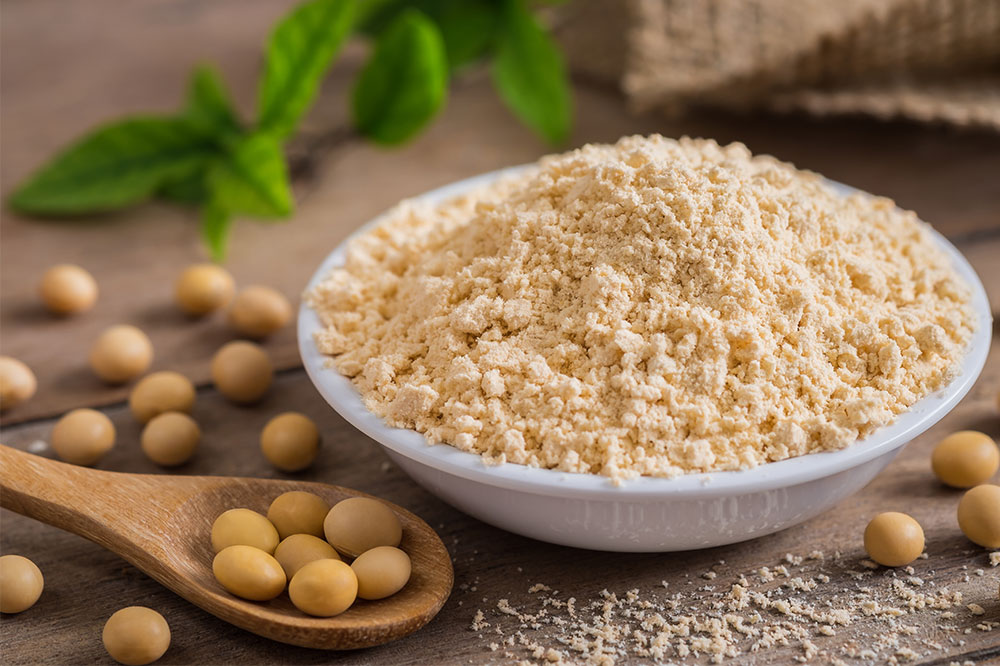
Soy – Types, health benefits, and side effects
Soy or soybean is a legume that is a nutrient-rich source of protein. Soy has been a staple for hundreds of years, and its high protein density makes it an ideal meat substitute for vegans. Soy is also one of the few plant foods containing essential amino acids. This article will discuss the different types of soy, their benefits, their side effects, and their nutrition facts. Read on to learn about soy and its benefits.
Types of soy
Soy is available in the market in various forms and colors, each with unique characteristics and uses. Each variety of soy has its unique nutritional profile and culinary uses. Among the popular ones are:
Yellow soybeans
This type of soybeans is light yellow. It is the most commonly used variety in Western countries. They are used to make soy milk, tofu, and other soy products.
Green soybeans (edamame)
Edamame is a young soybean harvested before it matures. The beans are green, and they have a sweet flavor. These soybeans are often served as snacks or appetizers.
Enriched soybeans
These are fortified with additional nutrients, such as minerals and vitamins, and are commonly used in food products like cereal, bread, and snack bars.
Non-GMO soybeans
Non-GMO soybeans are not genetically modified and are primarily used to produce organic soy-based foods.
Black soybeans
This type of soybeans have a dark-colored outer layer and are small in size. Black soybeans are commonly used to make black bean paste – a common ingredient in soups and some sauces.
The benefits of soy
Soybeans and soy products are proven to have several significant health benefits . It is a very nutritious food with many health benefits, from improving cardiac health to reducing cholesterol levels. Adding soy products to an individual’s meal plan will improve bone health and digestive function. Here are some proven health benefits of a soy-based meal plan:
Lowers cholesterol levels
Soy contains chemical compounds called isoflavones that can help lower LDL cholesterol in the blood, i.e., the bad kind. A review of 35 studies found that consuming soy protein can lead to a significant (3-5 percent) reduction of LDL cholesterol levels.
Improves cardiac health
Besides reducing bad cholesterol, soy may also help reduce the risk of premature heart disease. A study of over 200,000 participants found that consuming soy products was associated with a 12% reduction in the risk of developing coronary heart disease.
Improves blood sugar control
The fiber and protein in soy may help regulate blood sugar levels and improve insulin sensitivity. A study of 20 women with type 2 diabetes found that consuming soy protein for eight weeks led to noteworthy positive changes in blood sugar levels.
Soy reduces menopausal symptoms
Soy contains phytoestrogens, which are plant compounds that can mimic the effects of estrogen in a woman’s body. These natural compounds help alleviate hot flashes and other menopausal symptoms in women.
Improves bone strength
Soybeans are a great organic source of calcium and magnesium, two vital minerals for bone health. Consuming soy and its products help prevent osteoporosis and other bone-related disorders in older people.
Soy nutrition facts
A nutrient-dense food rich in calories and protein, soy is a healthy legume with many health benefits, as discussed above. Here are some of the key nutrition facts about soy:
Protein: One cup of cooked soybeans contains 29 grams of protein, making it an excellent source of protein.
Fiber : One cup of cooked soybeans contains 10 grams of fiber, which can help improve digestion and reduce the risk of heart disease.
Vitamins and minerals : Soy is a rich source of vitamins and minerals, including iron, calcium, and vitamin B6.
Low in saturated fat : Soy is low in saturated fat, which can help reduce the risk of heart disease.
Side effects of soy
While soybeans and soy products are generally considered safe for most people, some potential side effects might be associated with them. These include allergic reactions, digestive issues such as bloating and gas, hormonal changes due to phytoestrogens, and thyroid issues. Additionally, soy also contains compounds called phytates that can interfere with the absorption of certain nutrients, such as iron and zinc.
However, it’s necessary to remember that soy may not be suitable for everyone, and consuming soy and its products causes adverse side effects in some people. It is always best to consult a physician or a registered nutritionist before making significant changes to one’s meal plan.
Soy is a rich natural source of vitamins, minerals, antioxidants, and amino acids. Its high protein content makes it an ideal choice for health-conscious individuals and a meat replacement. One can choose from different types of soy available in the market, each with its health benefits. Its lack of major side effects makes it a good choice for those with food restrictions.




